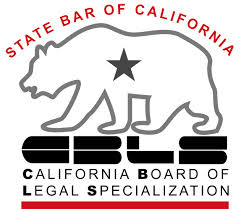The U.S. government imposes a tax on the transfer of your property to others both during your lifetime and when you pass away. This tax is known as the Unified Gift and Estate Tax. The good news is that due to recent changes in the estate tax laws, many individuals no longer need to be concerned with planning to avoid or minimize estate taxes.
Who Needs to Worry About Estate Taxes?
As explained above, not everyone has to worry about paying federal estate taxes. If your estate falls under the government exemption, your trustee/executor does not have to file an estate tax return (IRS Form 706) and pay the required tax within nine months of your death. Currently (in 2014), the estate tax exemption is $5,340,000.00 per decedent and is scheduled to be adjusted annually for inflation.
It is important for you to realize what property will be included in your estate for federal estate tax purposes. The estate includes all property owned by the decedent at the time of death: cash, stocks, bonds, annuities, investments, real estate, vehicles, personal property, life insurance proceeds from policies owned or transferred by the decedent within three years of death, life insurance paid to the estate, artwork, collectibles, jewelry, etc. The taxable estate includes assets passing through probate as well as assets that pass through joint tenancy or beneficiary designations (IRAs, 401k plans, pension plans, etc.). And, the estate also includes the decedent’s ownership interests in any business entities such as corporations, partnerships or LLCs.
As you can imagine, once calculated you may be surprised to find your taxable net worth.
If the decedent is married, it may be possible to plan the estate so that any estate taxes of the spouse who is the first to die are deferred until after the death of the surviving spouse. And, recent laws enacting “portability” allow a married decedent to transfer his or her unused exemption to the surviving spouse. Planning in such a fashion would permit a married couple to shield the full amount of both of their exemptions (currently $10,680,000.00) from estate taxes.
Who Will Have to Pay Your Estate Taxes?
Your estate will have to pay estate taxes if the net value (gross assets minus debts) of your estate when you die is more than the exemption amount in effect at the date of death. If your estate exceeds the exemption amount, the tax is high (currently 40% of the excess over the exemption). So, for example, if your taxable estate is $7,000,000, then the estate tax would be $664,000 [(7,000,000 – 5,340,000) x .40]. This amount is due in cash within 9 months after the date of death.
Your estate representative (the Executor or Successor Trustee, as the case may be) must complete the timely filing of the estate tax return and the payment of the taxes. Thus, if the estate is not liquid, the representative may have to sell or liquidate assets in order to raise the cash to pay the taxes.
Gifting Considerations
The estate tax and gift tax are unified. This means that the exemptions and tax rates are the same for both taxes. Thus, current law allows a lifetime gift tax exclusion of $5,340,000.00 per person, but taxes are at 40% on any aggregate gifted amount in excess of that amount. Notwithstanding this, a person can gift up to $14,000.00 per year per donee without utilizing any of his or her lifetime gift exemption.
Lifetime gifting can be a very effective way of shifting wealth to avoid or minimize estate taxes. Not only is the value of the gift excluded from the estate of the donor (although then the estate tax exemption is correspondingly reduced), but any future appreciation on the gifted asset is also out of the estate of the donor. In addition, there are techniques that permit “leveraging” of the gift exemptions, which effectively allow for optimum utilization of the exemptions. We are happy to discuss these further with you.

